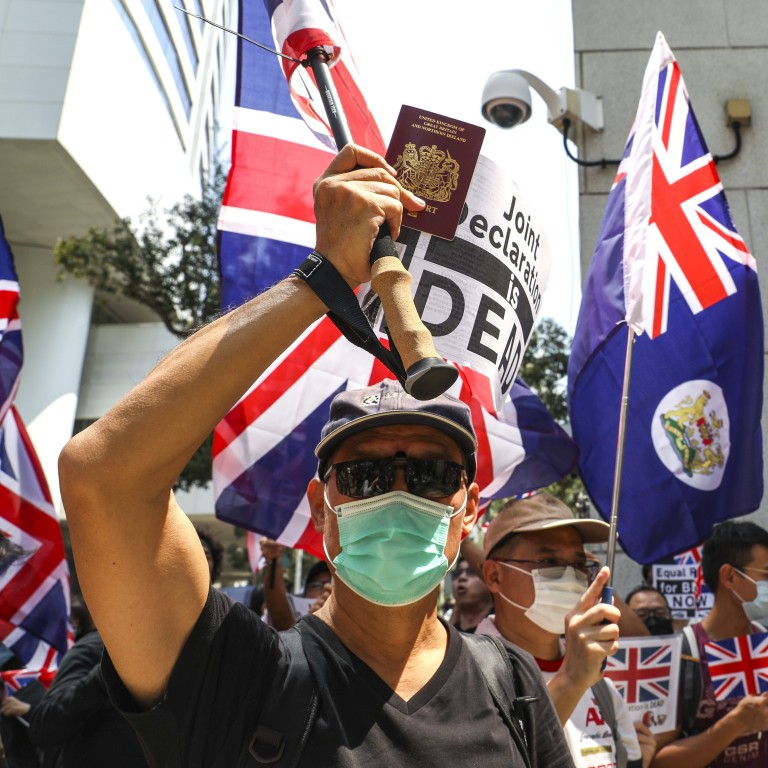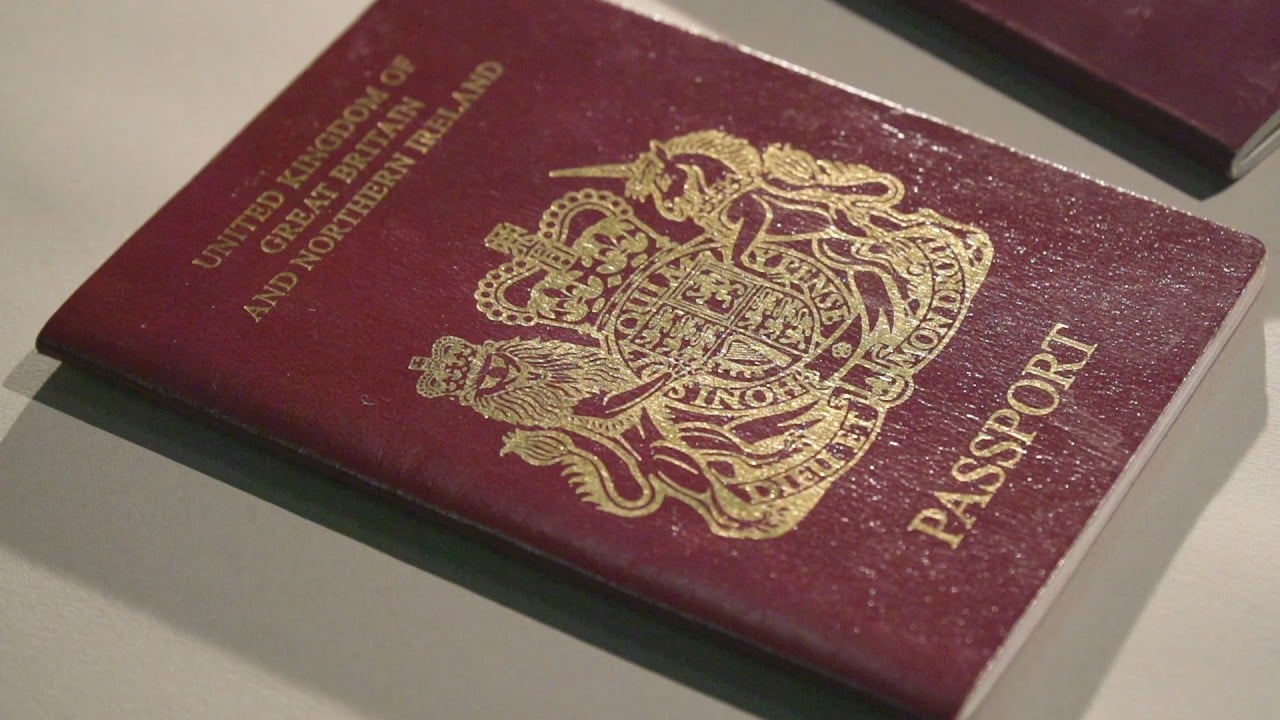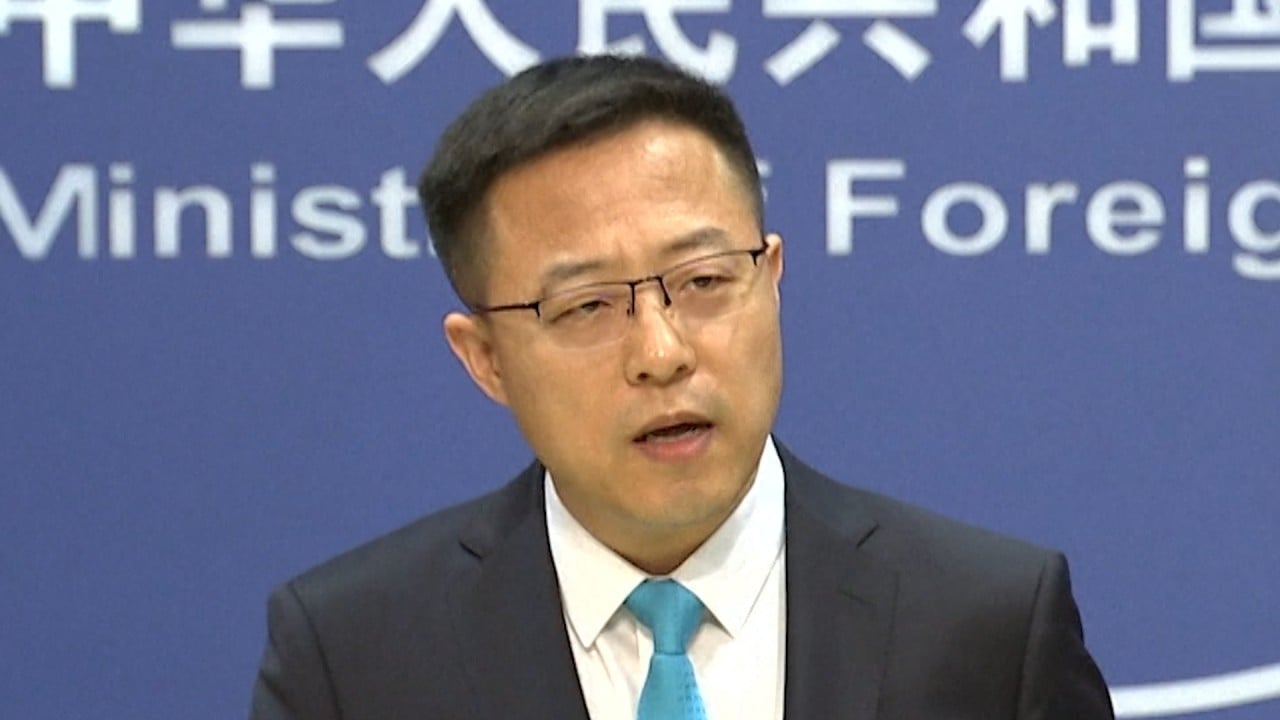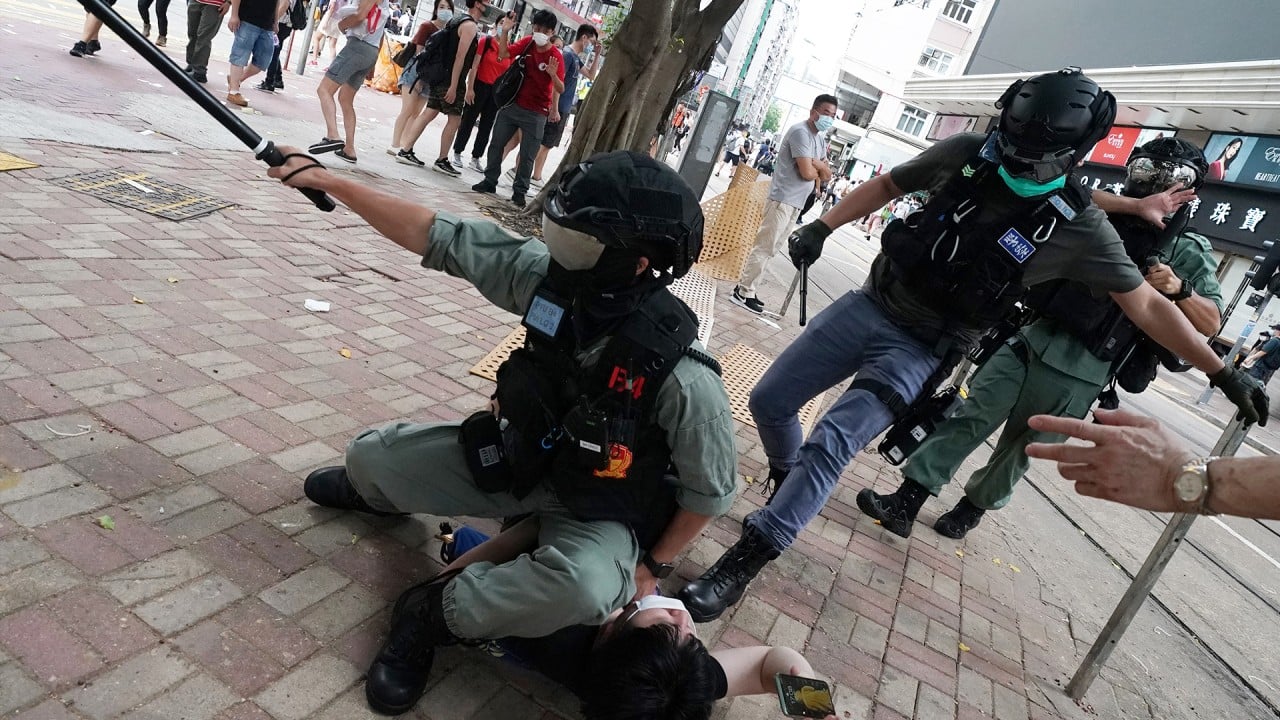
China lashes out at Five Eyes nations as Britain and Australia offer to help Hongkongers
- BN(O) passports and possible arrangement by Canberra offer safe havens after Beijing enacts controversial national security law
- Passport applicants in Hong Kong keen to have an escape route but wary of the difficulties in settling elsewhere
“Compare the security of Hong Kong with our relations with other countries; it is clear at a glance which one is more important,” ministry spokesman Zhao Lijian said.

01:38
UK offers Hongkongers with BN(O) passports path to citizenship after new national security law
He did not give details about the possible new arrangements, but said the measures would soon be considered by his Cabinet.
“We think that’s important and very consistent with who we are as a people.”
Morrison’s remarks came after Britain announced that Hongkongers eligible for British National (Overseas) passports, their spouses and underage children would be allowed to resettle in the UK and given a path to British citizenship.

00:56
China condemns UK for citizenship offer to BN(O) passport holders in Hong Kong
Holders of BN(O) passports – available to Hong Kong citizens born before the former British colony’s 1997 return to Chinese rule – would have the right to remain for five years, after which they could apply for settled status, effectively giving them permanent residency. After 12 months of settled status, they could apply for citizenship.
In early June, Britain spoke to its Five Eyes allies, namely the United States, New Zealand, Australia and Canada, about “the possibility of burden sharing” if there is a mass exodus from Hong Kong. About 2.9 million Hongkongers would be eligible for BN(O) status.
Germany’s Angela Merkel says right of asylum available to all, including Hongkongers
“For historical reasons, it is quite clear that the British government has positioned itself [to] take care of the BN(O) holders and their relatives,” said Andreas Fulda, assistant professor of the school of politics and international relations at University of Nottingham in Britain. “That might be quite a big group [although] not all of them will take up this offer.
“But for teenagers or young students [born after 1997] who don’t fall into that category, it is highly likely that there will be a division of labour [among the Five Eyes nations].”
In Hong Kong, some residents intending to renew or apply for BN(O) passports said the offer gave them a degree of assurance. But they were concerned about the uncertainty of settling abroad, particularly given that they would not be entitled to apply for social welfare and other benefits during the first five years in Britain.

06:50
Hundreds arrested, thousands protest in Hong Kong during first day under new national security law
Iris Wong, 26, said having a second passport was attractive but she would move to Britain only as a “last resort” if the situation in Hong Kong continued to worsen.
“Of course I’m a bit worried, because we would have some restrictions for five years before we could apply for citizenship,” she said. “We aren’t British citizens yet, so to go there you need to have sufficient funds to support yourself. I am saving, but it still isn’t enough right now.”
Jan, a 40-year-old father of two who posted his renewal application on Tuesday, said he and his wife were considering emigrating to Britain with their children but would wait for more details to be announced.
Hong Kong national security law official English version:
“My family and I thought about emigrating to other countries like Canada even before the announcement,” Jan, who works in IT, said.
“I’m a bit worried about the lack of social benefits during the first five years, but if you don’t take the first step then you won’t be able to take a second. It’s better to have a safeguard, so I must take this first step.”
Among the Five Eyes nations, Canada, New Zealand and the US have yet to propose any special immigration policy for Hongkongers who wish to leave the city in response to the new law.
But the US House of Representatives on Wednesday passed a bill imposing sanctions on banks that do business with Chinese officials involved in cracking down on pro-democracy protesters in Hong Kong. New Zealand Foreign Affairs Minister Winston Peters said his nation had “serious concern” about the legislation.

05:50
What you should know about China's new national security law for Hong Kong
Canada warned its citizens that they “may be at increased risk of arbitrary detention on national security grounds and possible extradition to mainland China” in its travel advisory for Hong Kong.
Zhao hit back at the US, saying US politicians were “hiding their malicious intentions”. The Chinese embassy in New Zealand called on New Zealand to stop meddling in China’s affairs.
The spat with China over Hong Kong came as tensions between Beijing and the alliance have grown more fraught in recent months, over a host of issues including technology, trade and ideology.
For example, China has hit out at Australia after it was prominent in calling for an independent inquiry into the origins of the coronavirus, and made moves to prevent alleged infiltration by China in Australian politics.
Additional reporting by Gigi Choy

